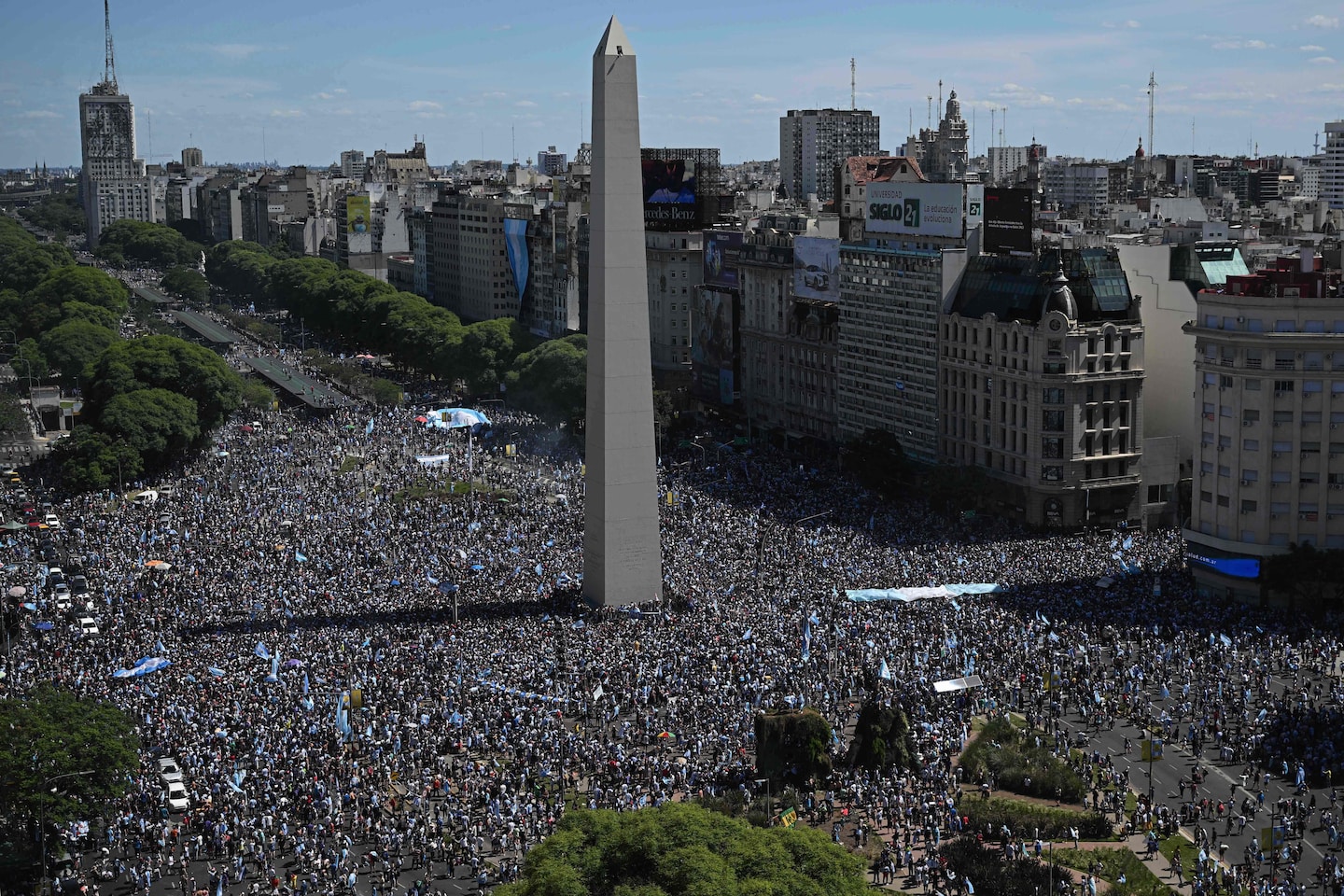On the pavement in the Colegiales neighborhood, speech therapist Angeles Usovich erupted into tears after the final penalty kick, falling to her knees as she called her father to celebrate.
“Aguante Argentina,” she shouted into the phone. “Argentina endures.”
Indeed, many in this South American nation of 47 million have said they badly needed something to celebrate lately. Inflation of 100% has meant hard economic times, forcing middle-class Argentines to forgo vacations and beef for their famed asados. The recent conviction and sentencing of Vice President Cristina Fernández de Kirchner on corruption charges has further polarized a bitter political climate.
But on Sunday afternoon, none of that seemed to matter: La Albiceleste had taken home its third World Cup — a crowning berth for Lionel Messi, the 35-year-old forward and team captain.
Widely considered one of the best to ever play the game, Messi had long been missing the biggest title in international soccer. That absence on his résumé had strained an already complicated relationship between Messi and his home country, which he left for Spain at the age of 13.
Some Argentines had criticized him for failing to bring them back a World Cup trophy, saying he was more European than Argentinean. They placed him second to Diego Maradona, the brash, bold figure who led the selección to its most recent World Cup victory in 1986.
No more. After Messi opened up the scoring in the first half with a soaring penalty kick over French goalkeeper Hugo Lloris, several thousand people watching on giant screens in Buenos Aires’s Plaza Intendente Seeber could not stop cheering.
“Leo,” one person from the crowd shouted, “we love you!”
Still, that penalty kick was not enough to put the team over France. Les Bleus equalized the score late in the second half with two quick-succession goals from Kylian Mpbappé, making it 2-2 and dragging the game to extra time. After Messi scored another stunner of a goal in the 108th minute, Mbappé again tied the game and forced the match to penalties (of which Messi scored one).
“I’m just totally overwhelmed. It’s incredible,” 37-year-old Carina Molina said minutes after those penalties. (She was crying, too.)
Born in 1985, she was alive for but not old enough to remember Argentina’s most recent World Cup victory, and played soccer for most of her childhood, long admiring the national team.
“It was time,” Molina added, noting that the anxious, up-then-down rhythm to the game — up 2-0 in the first half, then 3-2 in extra time, then finally eking out a win in penalties — could not have better captured a national sense of pessimism.
“We always try to get ahead, but there’s something that keeps up back,” she said. “We did it, though. My heart is about to explode out of my chest.”
Some of the homegrown criticism of Messi has faded this tournament as he shows a bit more attitude and Argentines praise him in what is expected to be his final World Cup. But whatever little animosity was left evaporated Sunday, as crowds filled Avenida 9 de Julio downtown, raising fake trophies cheering his name.
They also screamed Argentine fans’ preferred soccer chant for this year, “Muchachos, ahora nos volvimos a ilusionar” (“Guys, we’re getting our hopes up again”). It has become a kind of national mantra in recent weeks, one that places both Messi and Maradona in equal regard.
The song’s lyrics end like this:
Guys, now we’re getting our hopes up again
I want to win the third one, I want to be a World Champion
And from the sky we can see Diego and his parents
Back at the plaza, an Argentine flag hanging on a railing had a message etched out in paint: “We deserve beautiful miracles,” it said in Spanish, “and they will happen.”
On Sunday, it seems, they did.



